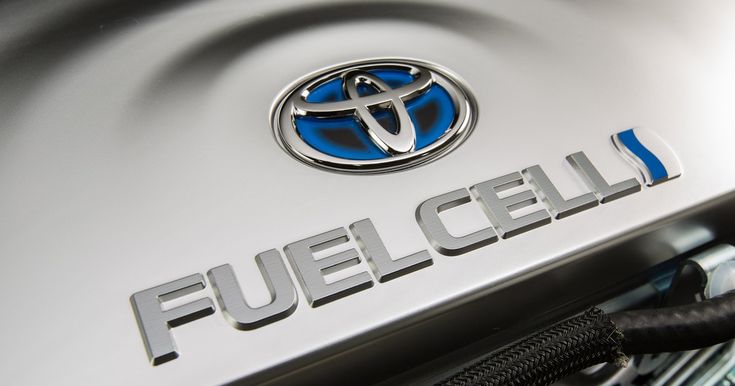In California, hydrogen stations are closing faster than they opened. Sales have plummeted 86%. Even Shell pulled the plug. Yet Toyota isn't backing down, they're doubling down.
The numbers are brutal. Toyota sold 499 Mirai hydrogen vehicles in the U.S. during 2024, down from 2,737 the year before. That's an 82% collapse in sales. Meanwhile, Tesla delivered over 1.8 million electric vehicles globally. The market has spoken, right
Wrong, says Toyota ‼️
While competitors abandon hydrogen faster than drivers flee gas stations during a shortage, Toyota remains steadfast. They're not just staying in the game, they're expanding it. The Japanese automaker recently unveiled their third-generation fuel cell system, positioning it as a diesel replacement for commercial vehicles. "We see a substantial opportunity to replace conventional diesel trucks with zero-emission, hydrogen-powered alternatives," Toyota announced at their 2025 Hydrogen and Fuel Cell Seminar.
The Infrastructure Apocalypse
You've heard it before: "My car will make it home on fumes." But hydrogen drivers can't rely on such optimism.
In February 2024, Shell delivered a devastating blow to California's hydrogen economy by permanently closing all seven of its light-duty hydrogen stations. The oil giant cited “supply complications and other external market factors”, corporate speak for “this isn't working.”
California, the supposed hydrogen haven, now operates just 52 functional stations according to H2-CA.com. That's down from 66 stations the previous year. Imagine trying to road trip in an electric vehicle when every fifth Supercharger suddenly vanished overnight.
Yet Toyota views this infrastructure crisis differently. Rather than seeing retreat, they see opportunity. "This temporary setback will separate the serious players from the speculators," a Toyota executive told me during a recent industry conference. They're betting that infrastructure challenges will consolidate the market in their favor.
The Pricing Desperation
Here's where things get interesting. A brand new 2025 Toyota Mirai can now be had for around $17,000 after incentives, making it one of America's cheapest new cars. This isn't celebration pricing; it's fire-sale desperation.
"I know hydrogen is the future," Mirai owners often say, even as they struggle to find working fuel stations. But Toyota isn't discounting to clear inventory, they're subsidizing market education. Every heavily incentivized Mirai creates a hydrogen advocate, someone who understands the technology's benefits firsthand.
The strategy reflects Toyota's marathon mindset. While competitors sprint toward quarterly profits, Toyota plays the decades-long game.
The Diesel Disruption Strategy
Here's Toyota's actual master plan: forget competing with Tesla in passenger cars. Target diesel's $50 billion commercial vehicle market instead.
Their new third-generation fuel cell system packs the same durability as conventional diesel engines while producing zero emissions. For long haul trucking, hydrogen offers something batteries can't: five-minute refueling and 400mile range without weight penalties.
"Electric works for city buses," explains Dr. Sarah Chen, a fuel cell researcher at UC Berkeley. “But cross country freight? That's hydrogen territory.”
Toyota isn't abandoning hydrogen cars, they're repositioning hydrogen as the diesel killer. Trucks, ships, industrial equipment, backup generators. These applications don't need ubiquitous infrastructure; they need performance batteries can't deliver.
The Competition Exodus
While Toyota digs in, competitors are fleeing. Stellantis and Renault abandoned hydrogen development in 2024. Ford never seriously pursued it. GM talks a good game but invests minimal resources.
This exodus doesn't discourage Toyota, it validates their contrarian approach. "When everyone else zigs, that's when zagging becomes profitable," notes automotive analyst Michael Harley.
The global hydrogen fuel cell vehicle market, valued at $2.32 billion in 2024, is projected to reach $162.30 billion by 2034, a 52.90% compound annual growth rate. Toyota wants to own that growth rather than chase today's electric vehicle profits.
The Technical Reality
Let's address the elephant in the room: hydrogen faces real technical challenges. Storage requires high pressure tanks. Production remains energy intensive. Distribution infrastructure costs billions.
But Toyota sees solutions where others see problems. Their fuel cell modules already power everything from buses to forklifts. They've formed joint ventures in China and partnerships across Europe. While others debate hydrogen's future, Toyota builds it.
"We know hydrogen works," says every Toyota engineer I've interviewed. They've spent three decades proving it.
The Verdict
Toyota's hydrogen obsession resembles their hybrid strategy from the 1990s. Back then, critics called hybrids unnecessary, expensive, and doomed to fail. Today, every manufacturer offers hybrid variants.
The automotive landscape needs diversity. Electric vehicles excel for daily commuting. Hydrogen shines for heavy duty, long-distance applications. Toyota positions itself for both futures rather than betting everything on batteries.
Their hydrogen persistence might seem stubborn, even foolish. But remember: this is the company that created the Prius, perfected lean manufacturing, and built legendary reliability. When Toyota commits to technology, they play to win.
The question isn't whether hydrogen will succeed, it's whether Toyota's three-decade head start will prove insurmountable when the market finally arrives. Based on their track record, I wouldn't bet against them.
What's your take on Toyota's hydrogen strategy? Revolutionary or reckless? Let me know in the comments below.

Comments (0)
Please login to join the discussion
Be the first to comment on this article!
Share your thoughts and start the discussion